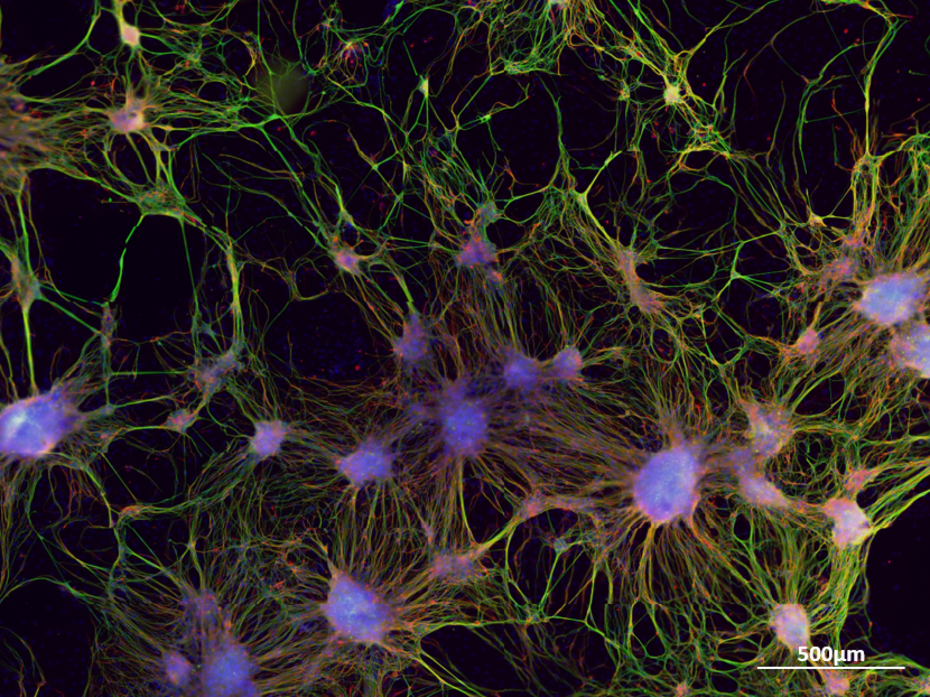
Ann-Kathrin Backes, AGENS
Contactmail: ann-kathrin.backes(at)hs-kl(dot)de
Study Course: Applied Life Sciences Bachelor & Master
University of Applied Sciences Kaiserslautern, Campus Zweibrücken
Bachelor thesis
Title: Influence of different bacterial strains on the enteric nervous system
Content: The human microbiome is composed of a multitude of different bacteria. In this thesis we investigated the effects of individual bacterial strains, as part of the intestinal microbiome, on the enteric nervous system (ENS), or intestinal motility, as one of the main functions of the ENS. For this purpose, certain intestinal segments were luminally perfused with bacterial supernatants or living bacteria. The movement of the intestine was recorded by a video camera and the change in movement over time evaluated using special software. Changes in intestinal diameter over time were displayed graphically. A change in motility waws expected due to the fact that a change in the microbiome, the natural intestinal flora, has an influence on the enteric nervous system. The influence of bacterial strains on the ENS was further investigated by co-culturing primary mouse ENS cells and bacteria or their supernatants using immunohistochemical methods. Additional immunohistochemical methods were performed on whole-mount preparations of the myentericus plexus, whereby the activity of neurons was investigated in dependence on a bacterial stimulus. By means of calcium imaging, which is performed with cultured cells of the ENS, the intracellular calcium signal of the cells were measured using a fluorescent dye. This calcium signal allows conclusions to be drawn about the excitation of the cells triggered by bacterial stimuli.
Supervised by: Prof. Dr. Karl-Herbert Schäfer and Maximilian Weyland, M. Sc., AG Enteric Nervous System, University of Kaiserslautern, Campus Zweibrücken.
Master thesis
Title: Establishment of an innervated, in vivo equivalent 3D co-culture model of the intestinal mucosa
Content: The functions of the gastrointestinal tract, such as food transport, digestion and regional blood circulation, are regulated and controlled by the enteric nervous system (ENS). The ENS is not only exposed to the microbiome and food components in the intestinal lumen, but also interacts with other cell types within the intestinal wall, e.g. local macrophages, cells of the immune system. Increasingly, the interaction between the immune cells present in the intestinal tissue and the nervous system is emerging as an essential component for many diseases, not only of the intestine but also of the nervous system.
Therefore, the aim of this work was to establish a three-dimensional in vitro co-culture model to study such interactions in a controlled system. This model can serve as a test system for reactions to inflammatory stimuli, infections and stress factors.
In the model, cells of the human monocytic cell line THP-1 differentiated to macrophages were cultivated together with primary murine ENS cells in a three-dimensional matrix. Subsequently, an epithelial layer was built up by adding cells of the human enterocyte cell line Caco-2. The use of a suitable extracellular matrix for embedding the immune and nerve cells, which also allows the formation of a confluent epithelial layer, and the composition of a suitable culture medium for co-culture had to be established. After successful initial establishment of a co-culture system that allows the viability of all three cell types, first functional tests of the model were performed in addition to morphological characterization and viability tests. These included measurement of the transepithelial electrical resistance to prove the barrier property of the model as well as the measurement of secreted inflammatory cytokines by immunoassays and FACS bead analyses. The inflamed state, caused by the addition of lipopolysaccharide (LPS) and IL-1β, was compared with the non-inflamed state of the culture.
Supervised by: Prof. Dr. Claus-Michael Lehr and Dr. rer. nat. Brigitta Loretz, Department Drug Delivery, Helmholtz Institute for Pharmaceutical Research Saarland (HIPS) and Prof. Dr. Karl-Herbert Schäfer, AG Enteric Nervous System, University of Kaiserslautern, Campus Zweibrücken.
